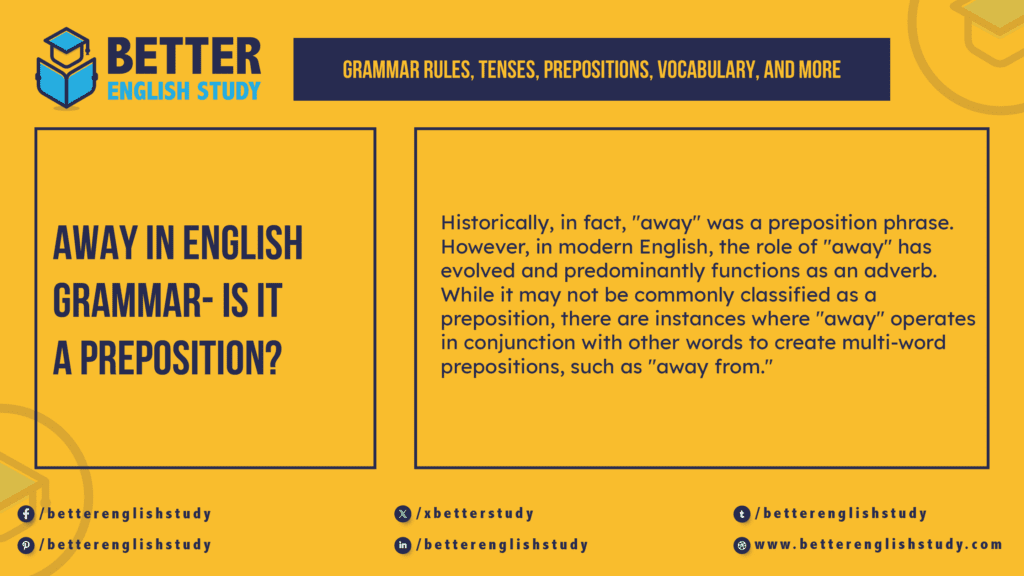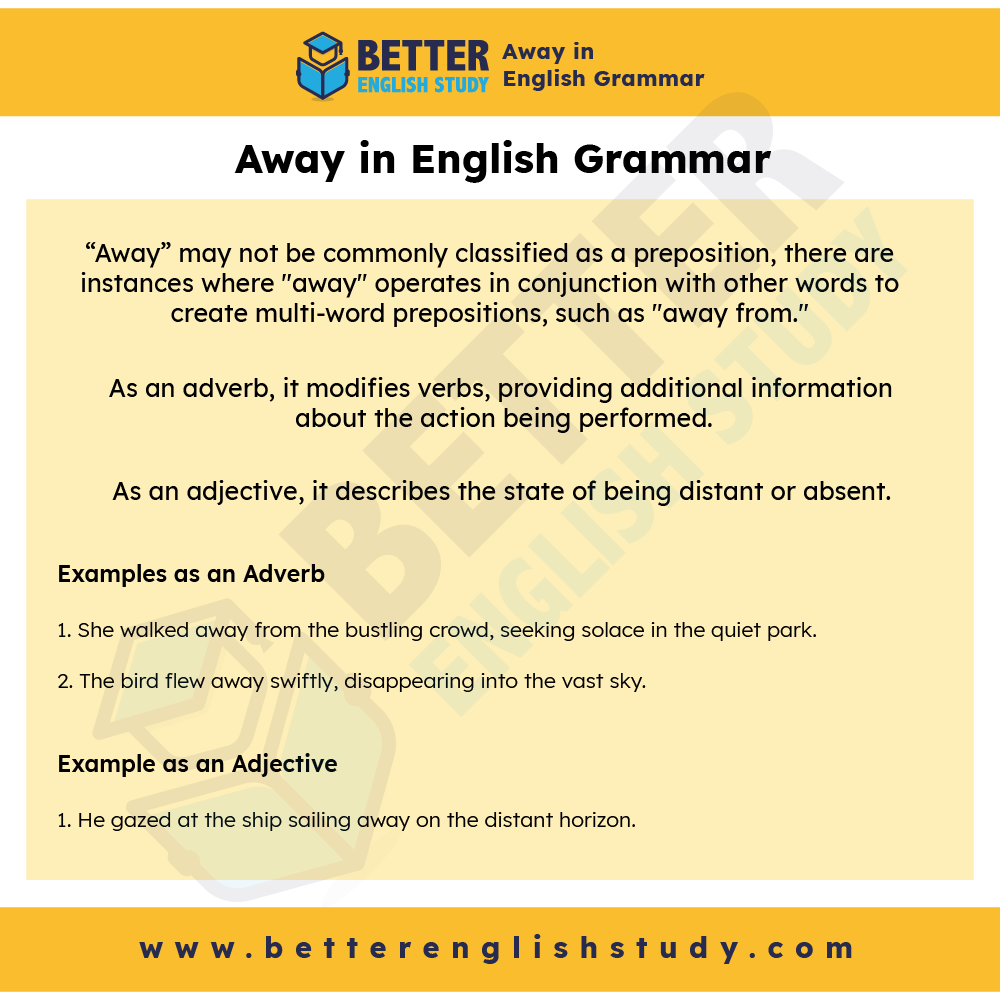
With its ever-evolving nature, language often presents words that carry historical significance in their grammatical roles. One such term that has traversed through different grammatical territories is “away.”
In this exploration, we will navigate the linguistic landscape to determine whether “away” qualifies as a preposition in contemporary usage.
Is Away a Preposition?
Historically, in fact, “away” was a preposition phrase. However, in modern English, the role of “away” has evolved and predominantly functions as an adverb.
While it may not be commonly classified as a preposition, there are instances where “away” operates in conjunction with other words to create multi-word prepositions, such as “away from.”
Away as an Adverb and Adjective
In contemporary English, “away” mainly functions as an adverb and an adjective. As an adverb, it modifies verbs, providing additional information about the action being performed.
As an adjective, it describes the state of being distant or absent.
Examples as an Adverb:
- She walked away from the bustling crowd, seeking solace in the quiet park.
- The bird flew away swiftly, disappearing into the vast sky.
In these examples, “away” modifies the verbs “walked” and “flew,” offering insights into the direction or manner of the actions.
Example as an Adjective:
- He gazed at the ship sailing away on the distant horizon.
Here, “away” describes the ship’s position, indicating its distance from the observer.

Away from as a Multi-Word Preposition
While “away” itself may not be classified as a preposition, combined with the word “from,” it forms a multi-word preposition, creating a more specific relationship between elements in a sentence.
Example as a Multi-Word Preposition:
- She moved away from the city, seeking a quieter life in the countryside.
In this instance, “away from” acts as a prepositional phrase, indicating the direction of the movement.
In conclusion, while “away” may have historically functioned as a preposition phrase, contemporary English predominantly operates as an adverb and an adjective. Its role in modifying verbs and describing distance showcases its adaptability.
Additionally, combined with “from,” it transforms into a multi-word preposition, offering a nuanced way to express relationships within sentences.
So, the next time you navigate the linguistic terrain, remember that “away” has gracefully transitioned through linguistic epochs, proving its versatility in conveying direction and distance.
